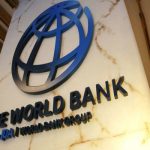
As the COP29 International Climate Conference gets underway in Baku, Azerbaijan, we, the movement from communities affected by the climate crisis, youths and civil society organisations and longstanding activists, call for climate justice for Africa, through the African Climate Justice Caravan movement. Climate change poses a significant threat to the whole world but more particularly to the African continent. Climate change comes in the form of floods, wildfires, heat waves, droughts, cyclones, and rising sea levels. Climate change is doing irreversible harm to the people in Africa, as villages are wiped away and their populations are forced to displace, communities facing famine or affected by vector-borne or water-borne diseases, young girls are being robbed of their education, taking up care work in the wake of climate disasters.
Recognizing unequal historic responsibilities among nations/parties for rising global temperatures, a goal of jointly mobilizing 100 billion dollars a year by 2020 was agreed as part of the Copenhagen Accord of 2009. The failure to meet the 100 billion USD goal and the questionable use of self-serving generous accounting standards by developed countries has undermined trust in the climate talks and has serious consequences as regards unlocking Climate Ambition among countries from the Global South. It is interesting to note the fact that 55 per cent of the funding provided to fragile and conflict-affected states in Africa came in the form of loans and other forms of debt financing, that will sink fragile states further into debt. Nigeria received the highest share of debt-creating climate financing (95 per cent), followed by Cameroon (87 per cent) and Burkina Faso (57 per cent). In 2022, a study revealed that 13 out of 20 African fragile and conflict-affected settings were either at high risk of debt distress or in debt distress.
From 2013 to 2019, West Africa/Sahel countries received a total of $11.7bn in international climate finance, an average of $1.7bn per year or $4.90 per year per person – a wholly inadequate amount to address the climate and poverty challenges in the region. Comparing 2019 levels of climate finance with countries’ stated needs in their Nationally Determined Contributions, one can find that this finance only covers 12.7% of the needs, while climate-specific net assistance may only cover 7.3%. For the Sahel countries (Nigeria Burkina Faso, Chad, Mauritania, Niger and Senegal), there is a climate adaptation finance gap of 82% between reported climate finance and countries’ stated adaptation needs. By providing loans rather than grants, these funds are even potentially harming rather than helping local communities, as they add to the debt burdens of already heavily indebted countries – more so, in this time of rising interest rates. There is also the situation of the violation of the rights of indigenous peoples, who see their lands monopolized and their natural resources exploited on a large scale by large international companies, with the approval of national authorities.
Acting in line with the mandate of the African Caravan for Climate Justice Movement to elevate the impacted communities, there are calls related to Africa’s climate adaptation and resilience needs, their running and envisioned solutions in agriculture, water or energy sectors.
The big issue facing the stakeholders in COP 29 is finance. If big actors do nothing, the Earth could be on the way to ruin. Actions will mean honouring commitments by the partners to mitigate climate change.
We hereby declare that the richest people, corporations and countries who hold the greatest responsibility for the climate crisis must shoulder the greatest burden of the climate debt. Wealthy countries, responsible for more than 90% of excess emissions, have built empires from the exploitation of the Global South. Fossil fuel corporations are responsible for 70% of global industrial emissions and have been making record profits over the last few years.
The world’s richest one per cent has burned through twice as much carbon as the poorest half of humanity since the 1990s. Meanwhile, billionaires are generating a million times more emissions than the average person through their investments.
We expressly reclaim climate justice for Africans, as the great injustice of the climate crisis – the people being hit the hardest – have done almost nothing to cause the problem, while the biggest polluters are reaping huge profits. We also emphasize that the provision of funds for Loss and Damage is an obligation.
The UNFCCC and Article 9 of the Paris Agreement underscore this and it is a crucial reminder that pledges should not be voluntary and should not be delivered in forms that allow contributors to earn profits and force those who have the least contribution to the climate crisis to pay. This obligation is not a matter of charity but of justice and equity. We, therefore, urge both state and non-state stakeholders to develop a comprehensive Resource Mobilization strategy that clearly outlines the scale required in trillions of dollars and mechanisms for mobilizing these resources effectively.
Based on the actual scale of need, developed countries must continue taking the lead and significantly increase their financial commitments to the Loss and Damage Fund.
It is not enough funds to be pledged; they must be delivered. Stringent timelines must be established to ensure that pledged funds are delivered. Accountability measures must be put in place to track the progress of disbursements and to hold contributors accountable if they fail to meet their obligations. This includes regular reporting and transparent monitoring mechanisms. The source of funds should also be public, complemented by innovative sources of finance, such as shifting fossil fuel subsidies, levies on fossil fuel extraction and financial transactions, taxes on shipping and aviation, and military divestment all applied based on equity and justice.
We, movements from communities affected by the climate crisis, youth and civil society organizations and longstanding activists are calling for climate justice for Africa.
Recognizing that climate change poses a significant threat to the whole planet but more particularly to the African continent, we make the following demands: Wealthy countries parties of the UNFCCC to scale massively their efforts and report climate financing on a case-by-case basis, highlighting the actual proportions channelled towards mitigation and adaptation; commit $5 trillion a year (this is less than the $7 trillion that governments spend on subsiding the fossil fuel sector) to turn the tide on the climate crisis and settle the climate debt that’s owed to countries, being hardest hit.
There is equally an urgent need for more grant-based financing for climate action and less momentum towards loaning the money they have all promised to give. We also demand the unlocking of the ‘means of implementation’ for adaptation and energy transition of the most vulnerable to climate change in the form of adequate and predictable finance and technology transfer by facilitating the long-term funded strategies through Nationally Determined Contributions; charge an additional higher rate of tax on polluting corporations’ excess profits. For instance, a tax of 50–90% on the windfall profits of 722 mega corporations could have generated up to US$941bn. Governments should also stop paying corporate handouts to fossil fuel companies in rich countries.
As governments around the world will agree to a new global climate finance goal at COP29 this November, African representatives must defend the populations they represent, so that they can obtain a specific target dedicated to sub-Saharan frontline communities in climate crisis in the new collective quantified goal on climate finance including the strengthening of effective resource transfer mechanisms for community resilience and the discontinuation of false solutions promoted as climate finance that have demonstrated their counter-productivity in achieving climate resilience in Africa’s rural communities. Secondly, there is a need for activation of the “polluter pays” principle to make wealthy parties pay their climate debt to raise climate finance for energy transition, food systems transition and climate adaptation. Thirdly, a fair debt-free financing of loss and damage, climate adaptation, and mitigation to support communities being hit hardest by the climate crisis. Especially, rich countries must commit to filling the fund with at least $400 billion a year to compensate communities on the frontlines of the crisis for the losses and damages they’ve incurred from climate change.
Biggest polluters must fill the gap in climate adaptation funding to help communities adapt to infectious diseases, heat stress, air pollution, and waterborne diseases amplified by a changing climate. The UNEP estimates that $387 billion a year is needed. In addition, there is a need for a fast and fair transition from fossil fuels to clean energy and towards a sustainable future through binding commitments from industrialized countries to raise $5 trillion a year that’s needed to support those communities most impacted by the climate crisis and cover the costs of building a fairer future. In this respect, a follow-up of the decision made last year in Dubai to triple renewable energy capacity and double global energy efficiency by 2030 is necessary.
As African governments are also accountable for their national climate action delivery, they are called upon to comply with the previous COPs commitments and agreements related to phasing-out of fossil fuels, implementation of the NDC and national adaptation plans, raise ambition of their updated NDCs expected in 2025 to meet the needs of climate affected communities related to their adaptation and resilience in food systems (agriculture, water, energy, transportation, etc.).
Also, African countries should adopt investment, resource exploitation and development frameworks that are compatible with climate-resilient development pathways, including exit from the exploitation of fossil fuel reserves. Finally, this declaration calls for active and meaningful participation from those most impacted by climate change, inclusive of indigenous peoples and internally displaced persons, as a result of climate change in the decision-making and implementation processes. Embedding the principles of inclusivity and equity into the Resource Mobilization Strategies on climate finance can ensure that our collective response to the climate crisis is just, comprehensive, and effective, truly leaving no one behind.
Michael Terungwa, Executive Director of the Global Initiative For Food Security And Ecosystem Preservation, writes from Abuja, Nigeria.


